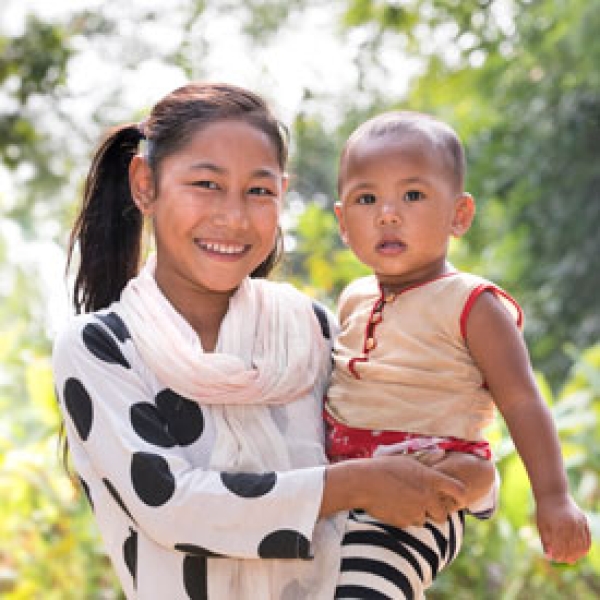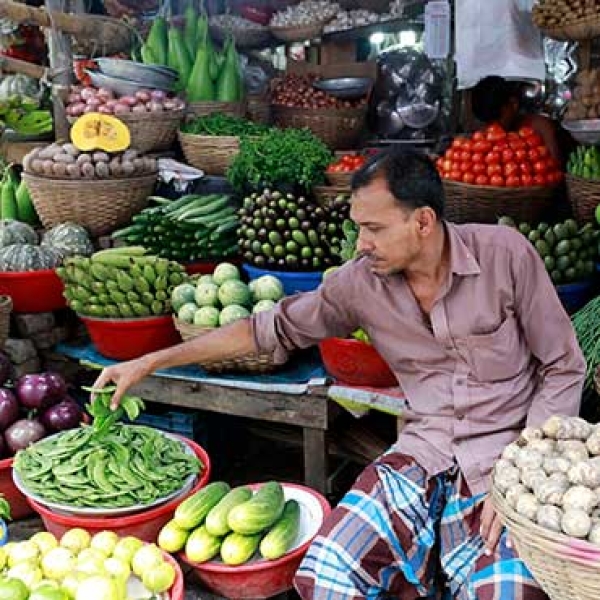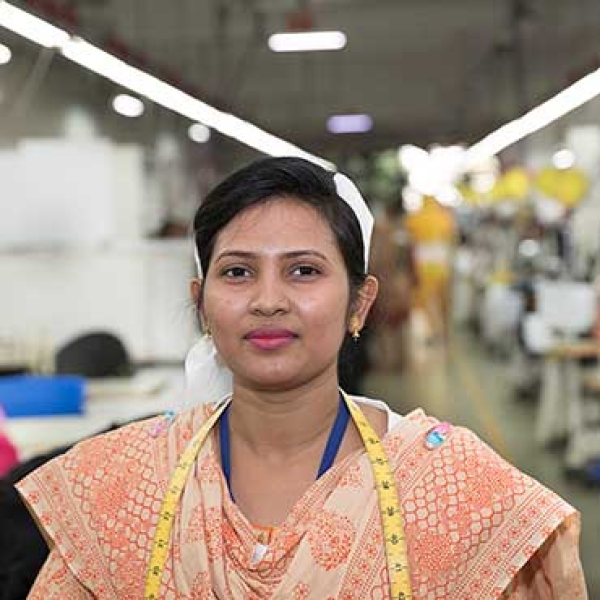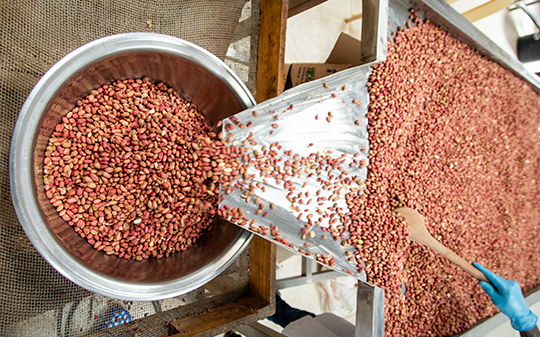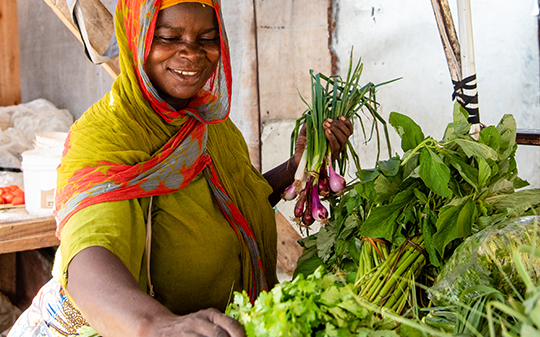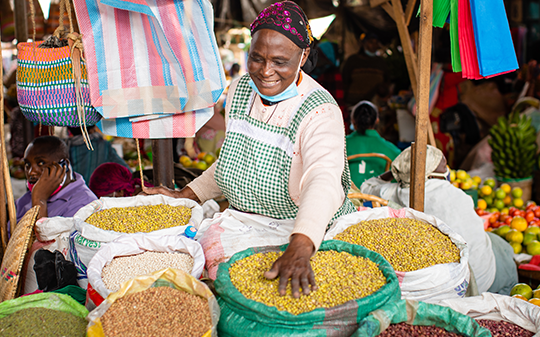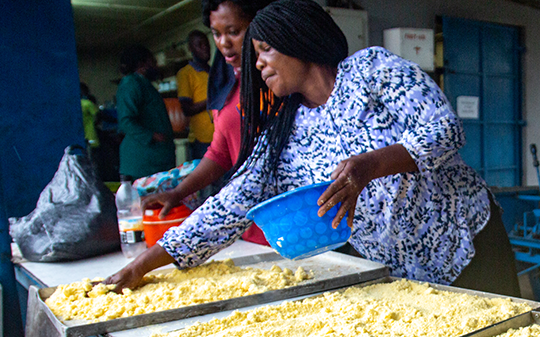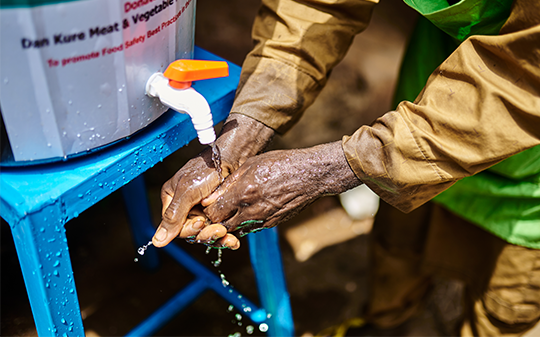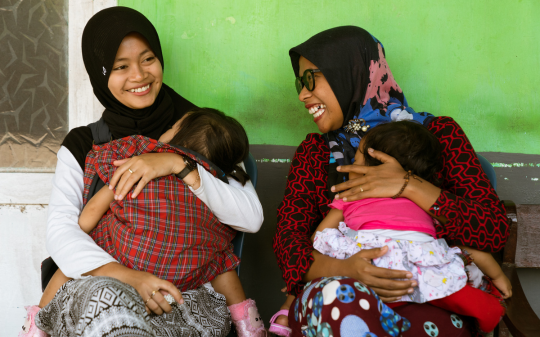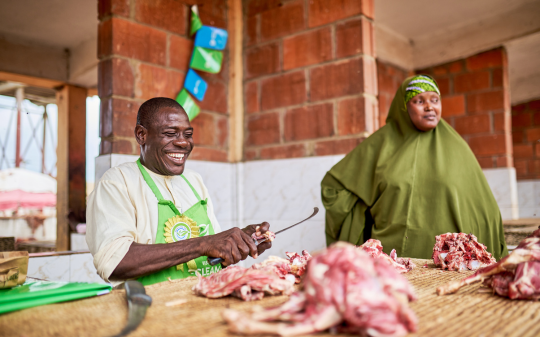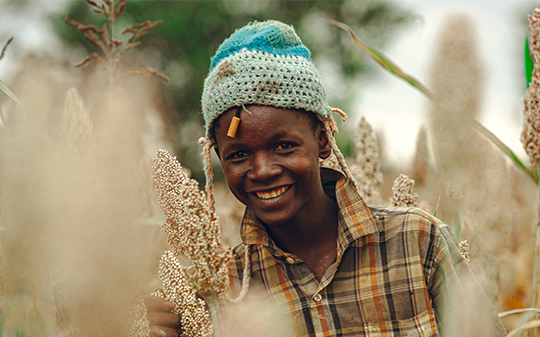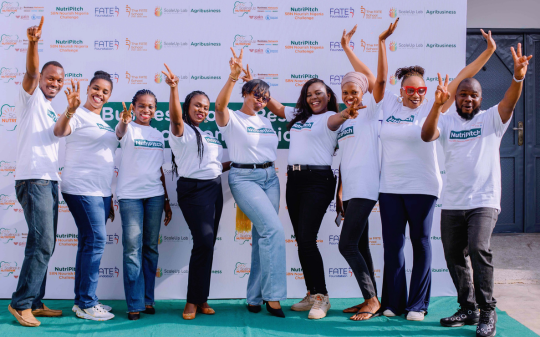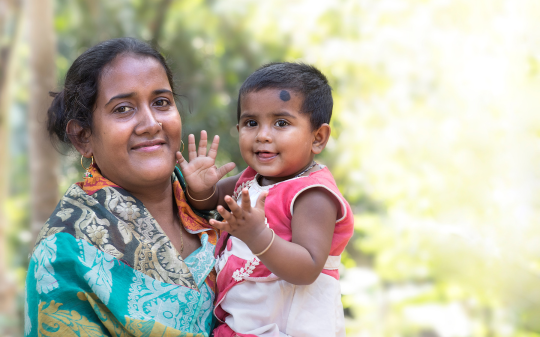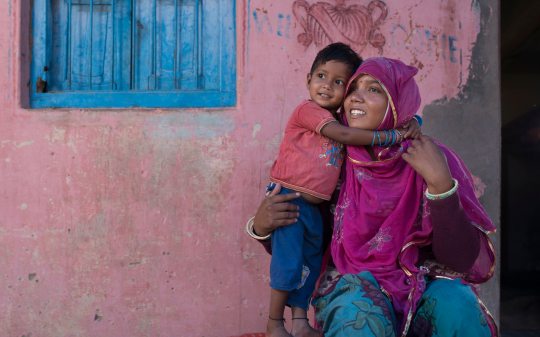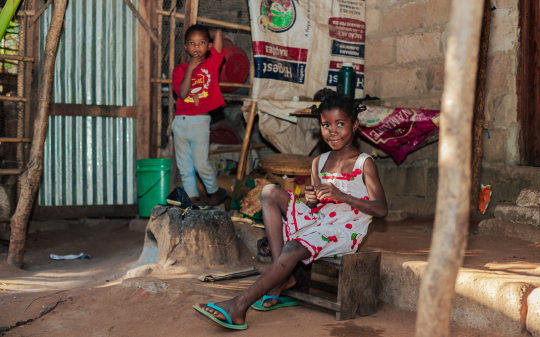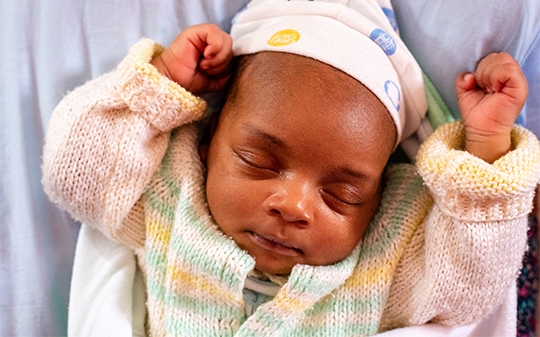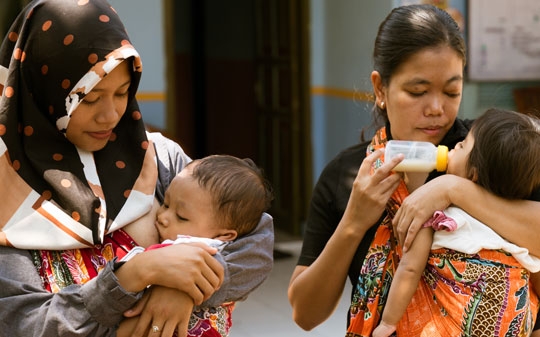Bangladesh has made remarkable progress in demographic, health, and nutritional status of the population in the last two decades. Based on the Bangladesh Health and Demographic Survey (BDHS) 2017-18, 31% of under 5 children are stunted, 8% are wasted, 22% are underweight and 2% are overweight. The percentage of stunting declined from 43% in 2007 to 31% in 2017-18. Similarly, the percentage of underweight fell from 41% in 2007 to 22% in 2017-18. After years at critically high levels (17% in 2011 & 14% in 2014), wasting decreased to 8% in 2017-18
The Multiple Indicators Cluster Survey (MICS) 2019 shows the stunting rate of under five children is 28%, as well as 9.8% are wasted, while 22.6% are underweight. The preliminary findings of National Micronutrient Survey in Bangladesh 2019-2020 show high prevalence of micronutrient deficiencies specially Vitamin A, Vitamin D, Vitamin B12, Folate, Iron deficiency Anaemia, Zinc across the population. Considering the prevalence of micronutrient deficiencies, the Government of Bangladesh has been emphasizing food fortification (both crop biofortification and industrial fortification) through different policies.
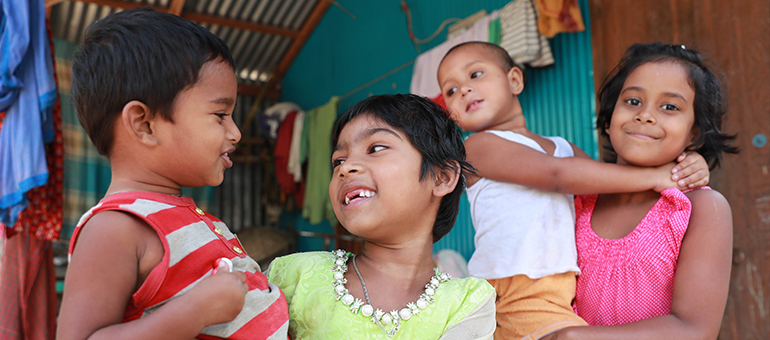
In Bangladesh access to healthy diets is critical for achieving the 2030 Sustainable Development Agenda. To achieve nutrition outcomes, Social Behaviour Change Communication (SBCC) has been integrated across nutrition-specific and nutrition-sensitive interventions, including greater focus on promotion of breastfeeding and increased consumption of affordable diversified diets. Investment in programmes and approaches to promote optimal dietary patterns and nutrient intake and enhance demand for healthy and sustainable diets are central to achieving SDGs 2, 3, 12 and 13.
Five Suggestions for Resilient Food Systems by the Hon'ble Prime Minister
1. Research, investment and advanced technology sharing for agricultural development
2. Increased funding for developing countries for achieving sustainable food systems
3. Developing regional and global coalitions and partnerships
4. Reducing food waste through collaboration among countries
5. Disbursing the committed fund to adapt to the climate-led extreme events, including sharing of technologies to achieve sustainable food security.
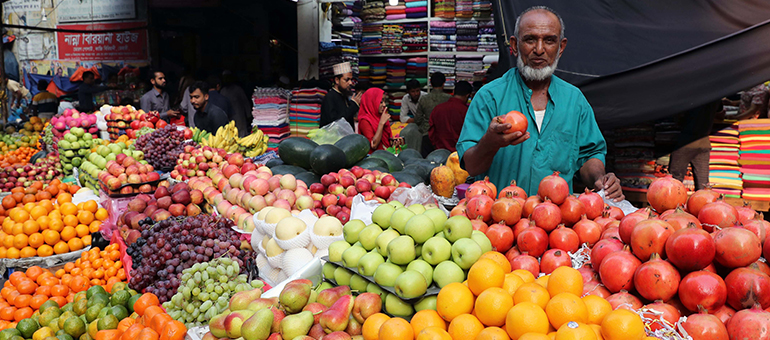
GAIN's contribution
The Global Alliance for Improved Nutrition (GAIN) is a Swiss-based foundation launched at the United Nations in 2002 to tackle the human suffering caused by malnutrition. Due to COVID19, conflict in Ukraine, and climate change, malnutrition and hunger have worsened significantly since 2019, reversing a decade of progress. There is growing recognition that our food systems need to change if we are to reverse these trends.
Bangladesh is one of the countries impacted by malnutrition. GAIN’s Strategy aims to transform food systems to make healthier diets from sustainable food systems accessible to all people and especially those who are most vulnerable to shocks. By 2027, we aim to improve the access of 1.5 billion people to nutritionally enhanced staple foods, improve the access of 25 million people to healthier diets, and support positive food system change in 10 countries.
This is bold and complex, and the only way to achieve this is to work together with partners including governments, businesses, and civil society at the country and global level. These goals, and the ways of achieving them, build on our twenty-year legacy of transforming people’s lives with improved nutrition through concerted action and effective policy change.
In Bangladesh, GAIN has been working for more than 10 years in partnership with various stakeholders including different ministries of government, development partners, UN agencies, private sectors, civil society organizations, and academia. Our work with the government and the private sector invests in sustainable and innovative ventures that tackle the national burden of malnutrition. Currently, GAIN Bangladesh’s portfolio includes Large Scale Food Fortification (LSFF) focusing on oil, rice, and salt fortification, Commercialization of Biofortified Crops (CBC) focusing on commercialization of zinc rice, promoting healthy diets by focusing on adolescent and youth nutrition, improving Workforce Nutrition (WFN), Keeping Food Markets Working (KFMW) focusing on food safety and WFN, Leadership to Ensure Adequate Nutrition (LEAN) to improve nutrition governance, improve maternal nutrition with Multiple Micronutrient Supplementations (MMS), private sector engagement through SUN Business Network (SBN), and the Food Systems Dashboard.
Programmes in GAIN Bangladesh have been rendered with integrating environment friendly to ensure sustainability and continued working on different elements of food system. GAIN is dedicated to working with partners to get the world on track to achieve the second Sustainable Development Goal (SDG 2): ending malnutrition in all its forms by 2030. But our mission extends beyond this, with strong synergies across the wider development agenda. GAIN has been effectively contributing to Bangladesh to achieve the vision of being a middle-income country by 2021 and will continue supporting to reach the vision of a developed country by 2041.
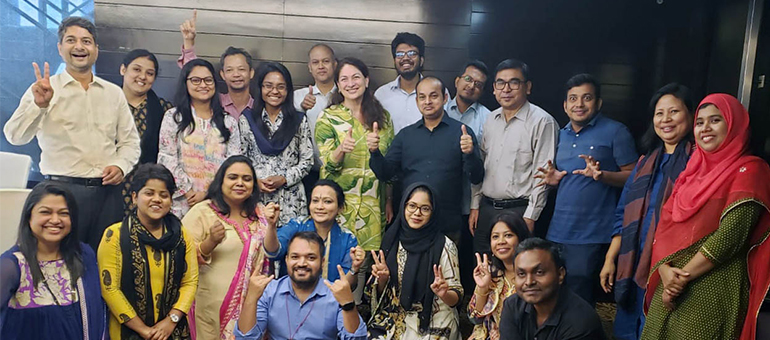
Bangladesh Staff Members on a recent Communications Workshop


